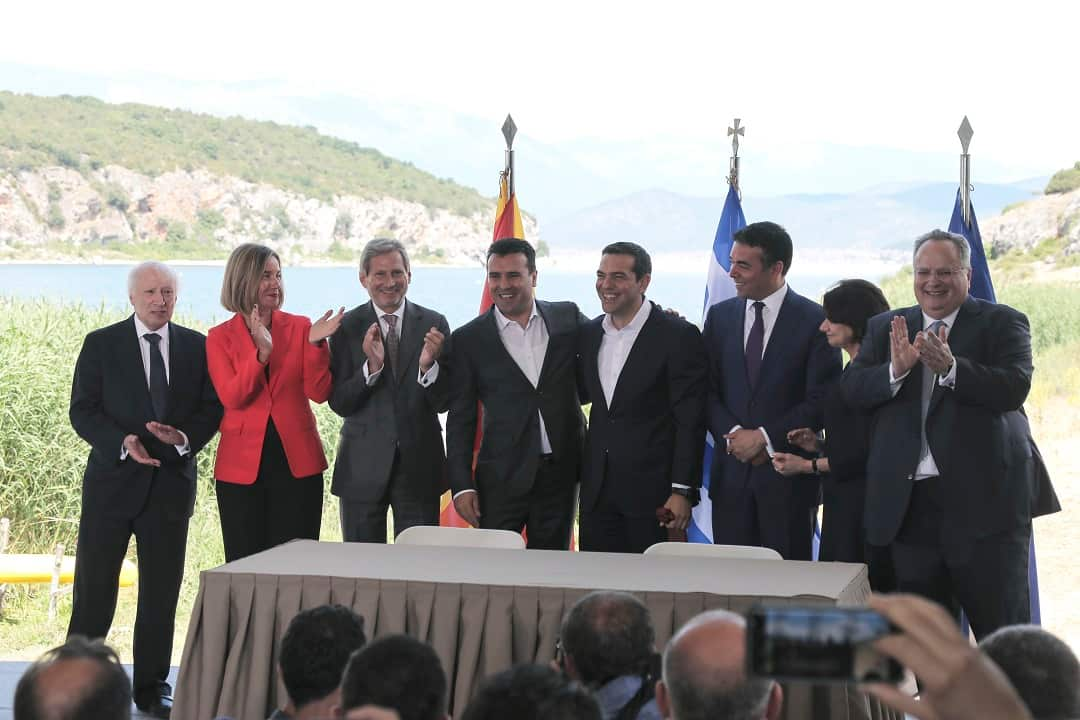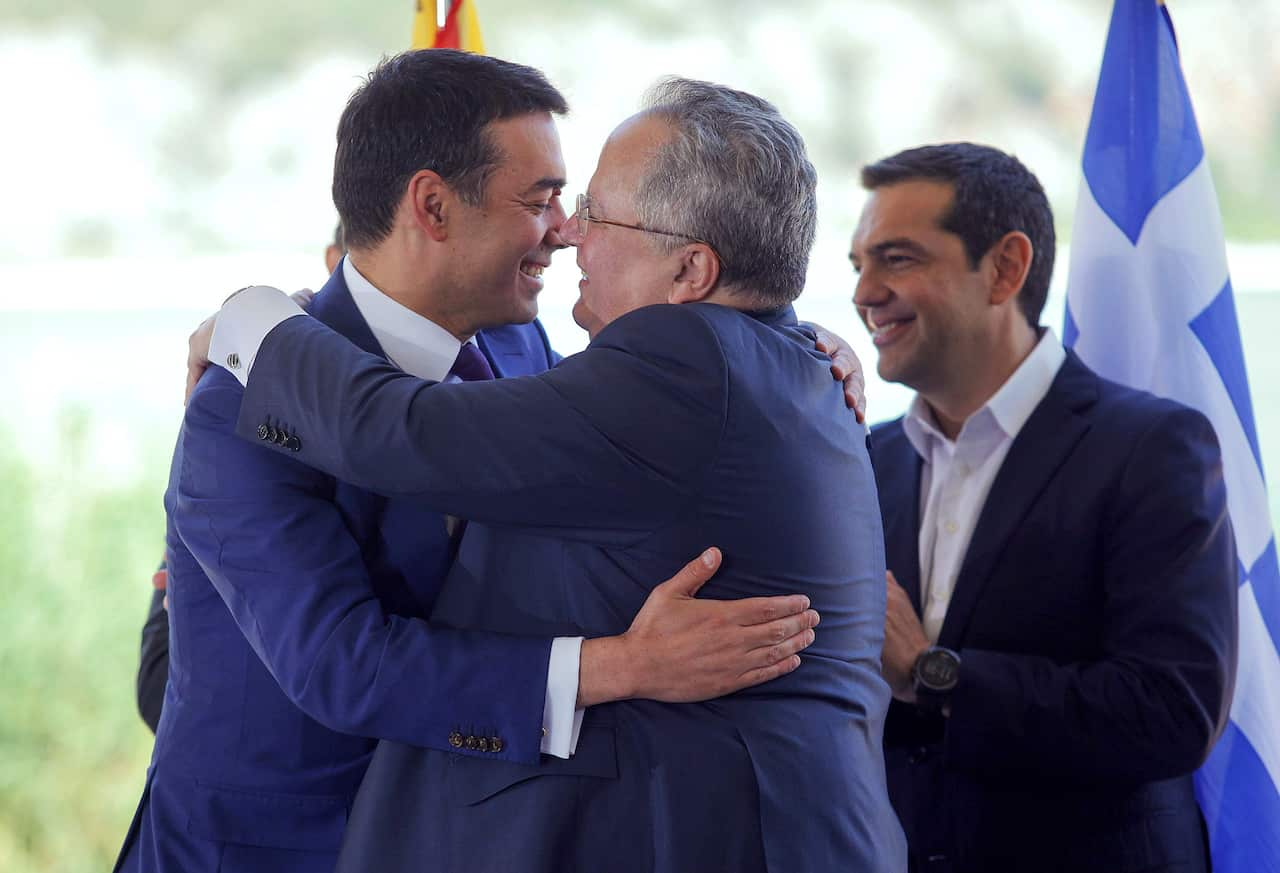Protests have erupted after Greece and Macedonia signed a historic preliminary agreement to rename the small Balkan nation the Republic of North Macedonia, ending a row that has poisoned relations between the two neighbours since 1991.
The foreign ministers of the two nations signed an accord on Sunday amid angry protests on both sides of the border.
In the Macedonian capital Skopje, hundreds of nationalists hit the streets to protest the decision, with police firing stun grenades and tear gas into the crowd.
A Reuters witness saw protesters throwing stones at police and chanting, "Macedonia, Macedonia we will give our lives for Macedonia."
Across the border, in the Greek village of Pisoderi, about 3000 people rallied against the historic deal. At least six people were injured in clashes with police.

The accord aims to start unravelling one of the world's longest diplomatic disputes, which began 27 years ago with Macedonia's declaration of independence but whose roots date back centuries.
"This is a brave, historic and necessary step for our peoples," said Greek Prime Minister Alexis Tsipras.
"We are here to heal the wounds of time, to open a path for peace, fraternisation and growth for our countries, the Balkans and Europe."
Macedonia Prime Minister Zoran Zaev said: "Our two countries should step out of the past and look to the future. By signing the agreement... we have really moved mountains."
Zaev and several of his ministers arrived by speedboat at the picturesque fishing village of Psarades under a sunny sky, on the southern bank of Lake Prespa, one of the natural boundaries between the two countries.
Tsipras and Zaev embraced on the village dock and were treated to a standing ovation by gathered dignitaries.
We have a historic responsibility that this deal is not held in abeyance.
UN under-secretary-general for political affairs Rosemary DiCarlo, longterm UN negotiator Matthew Nimetz, EU diplomatic chief Federica Mogherini and EU enlargement commissioner Johannes Hahn were on hand, snapping pictures with their smartphones.
Nimetz, who turned 79 on Sunday, and was given a birthday cake, has been trying to broker a solution since 1994, first as a US envoy and subsequently on behalf of the United Nations.
But it was the election of Zaev in 2017, replacing nationalist prime minister Nikola Gruevski, that proved crucial.
An economist and former mayor of Strumica, Zaev made a rapprochement with Greece a priority to secure his country's membership of the European Union and NATO, blocked by Athens for years.
After the signature, Tsipras crossed over to the Macedonian side of Lake Prespa for lunch, becoming the first Greek prime minister to visit the neighbouring state.
Since 1991, Athens has objected to its neighbour being called Macedonia because it has its own northern province of the same name, which in ancient times was the cradle of Alexander the Great's empire - a source of intense pride for modern-day Greeks.
The two premiers, born just months apart in 1974, have bucked strong hostile reactions at home to push ahead with the agreement.

Accusations of treachery
Tsipras has been accused of treachery by Greek hardliners, and on Saturday defeated a vote of censure against his government amid protests and clashes with police outside parliament.
In Macedonia, President Gjorge Ivanov plans to exercise a one-time veto option to block the deal that the nationalist opposition has called a "capitulation".
The Macedonian parliament is scheduled to start debating the agreement the coming week.
The accord still needs to be approved by Macedonia's parliament and then pass a referendum.
The Macedonian constitution must also be revised by the end of the year, before Greece's parliament is called to ratify it.
'Brave steps'
Tsipras' domestic critics say he has bargained away Greece's diplomatic advantages - the power of veto over EU and NATO accession - for a deal that could backfire.
Specifically, by officially recognising a Macedonian language and nationality, it is almost certain that the country will be called Macedonia by the broader world, instead of North Macedonia, opponents of the deal argue.
Officials in Athens insist the deal will help stabilise the historically volatile Balkan region, permitting Greece to focus on other regional challenges, Turkey among them.
Macedonia was admitted to the United Nations in 1993 under the provisional name of the "Former Yugoslav Republic of Macedonia", but more than 120 countries including Russia and the United States have recognised the Balkan country under the name of "Republic of Macedonia".
Skopje hopes to secure a date to begin EU accession talks at a bloc's summit in late June and an invitation to join NATO in mid-July.

